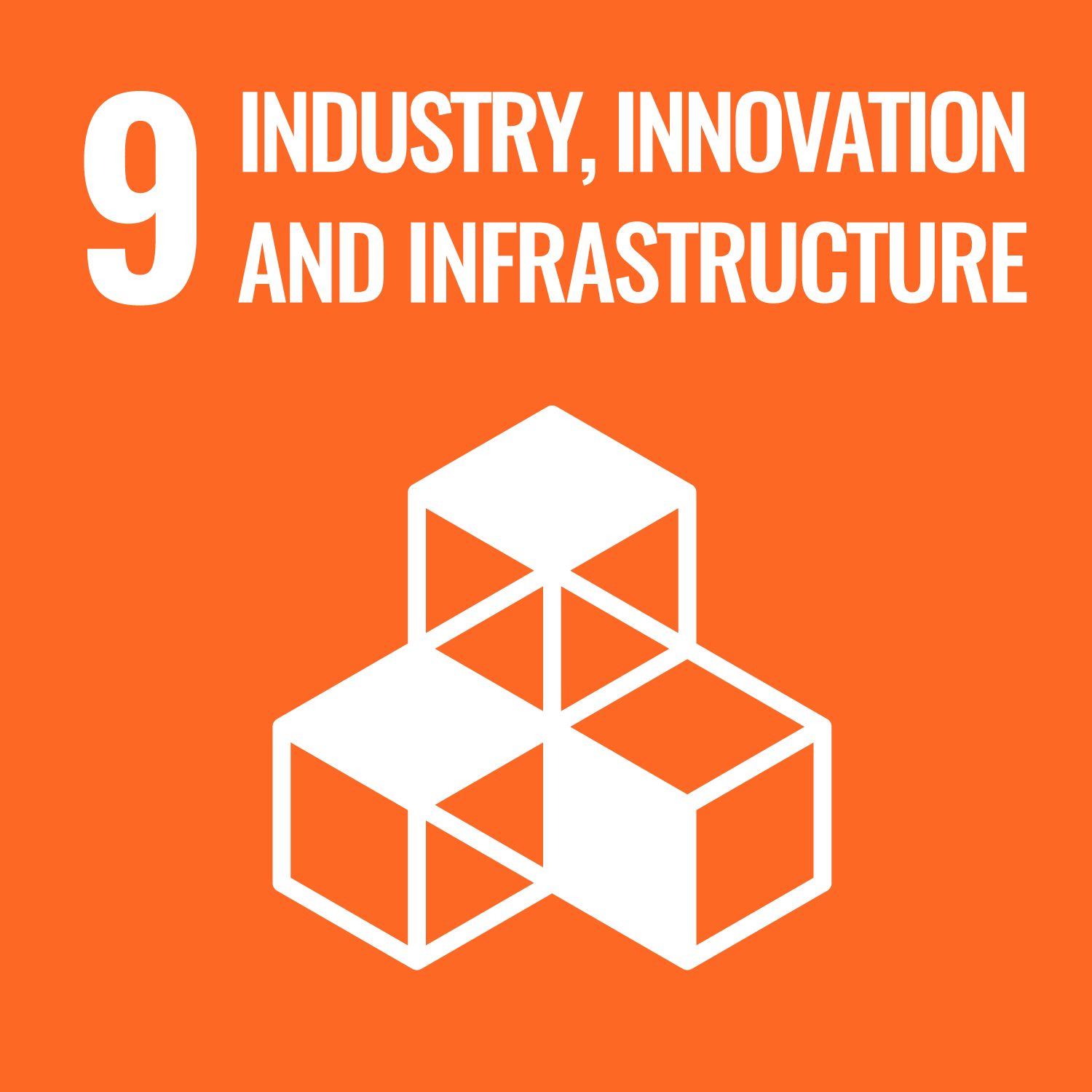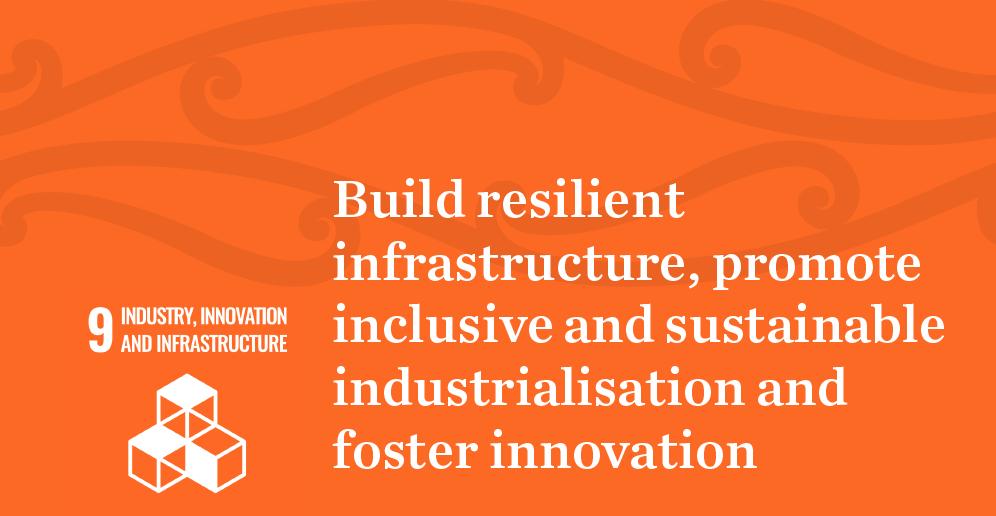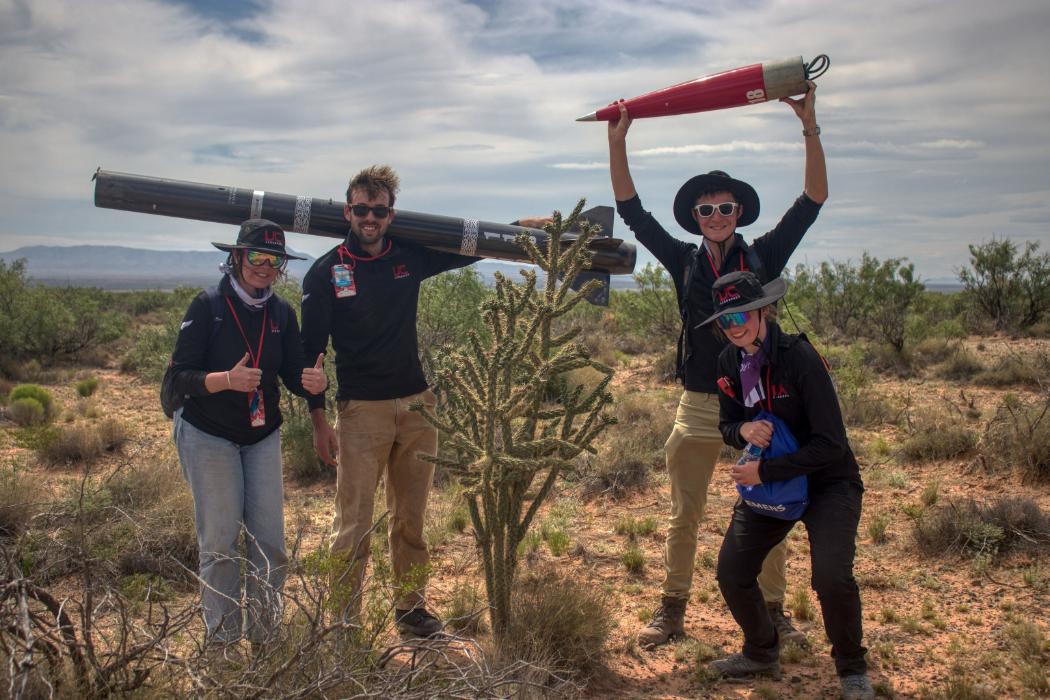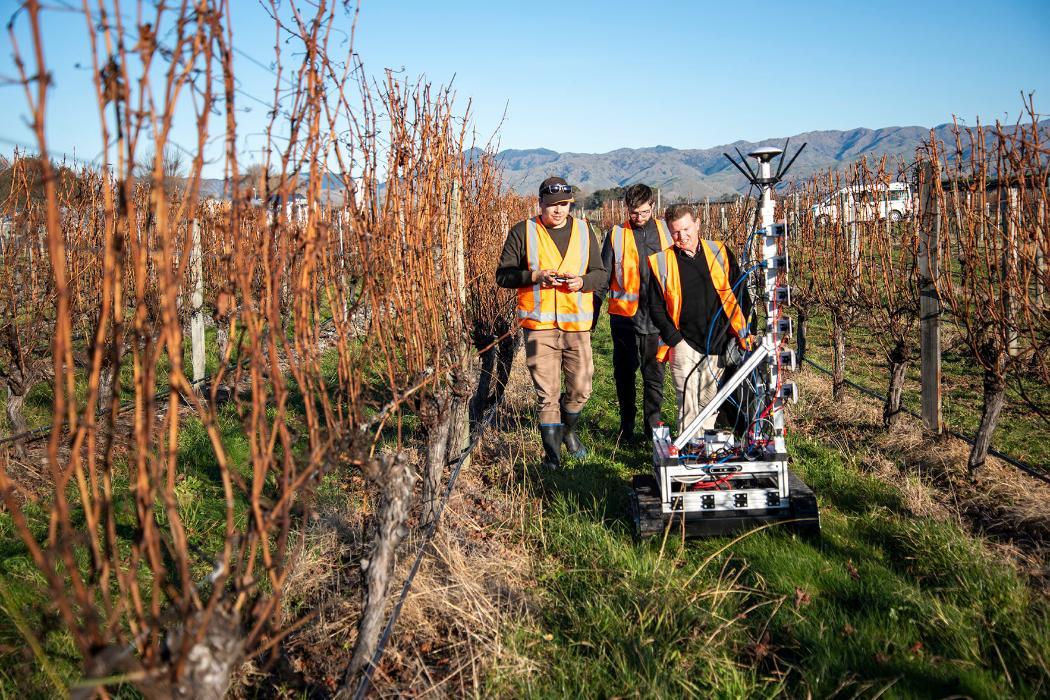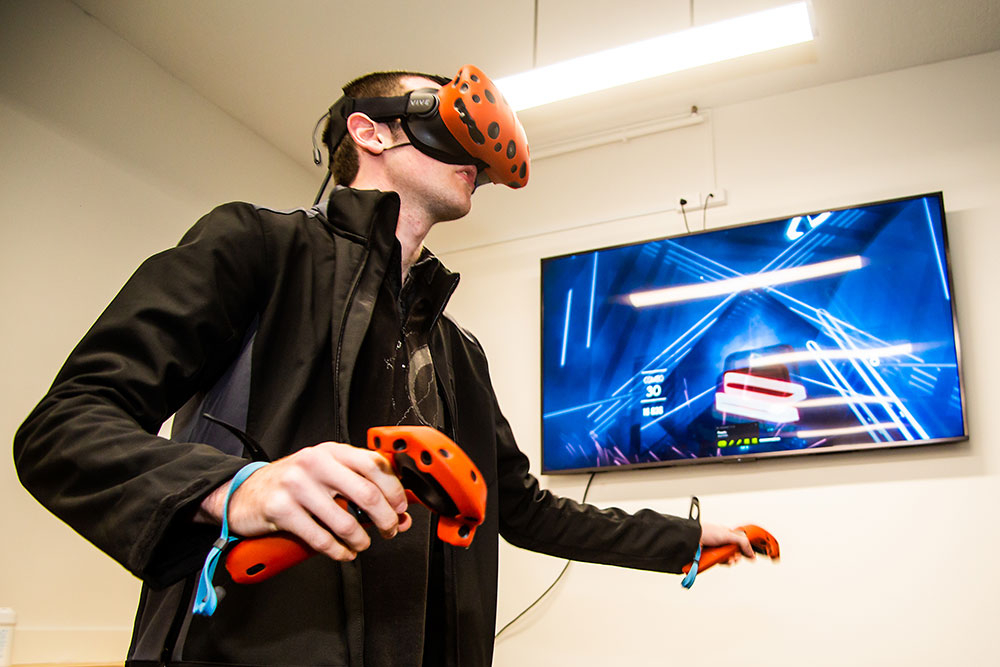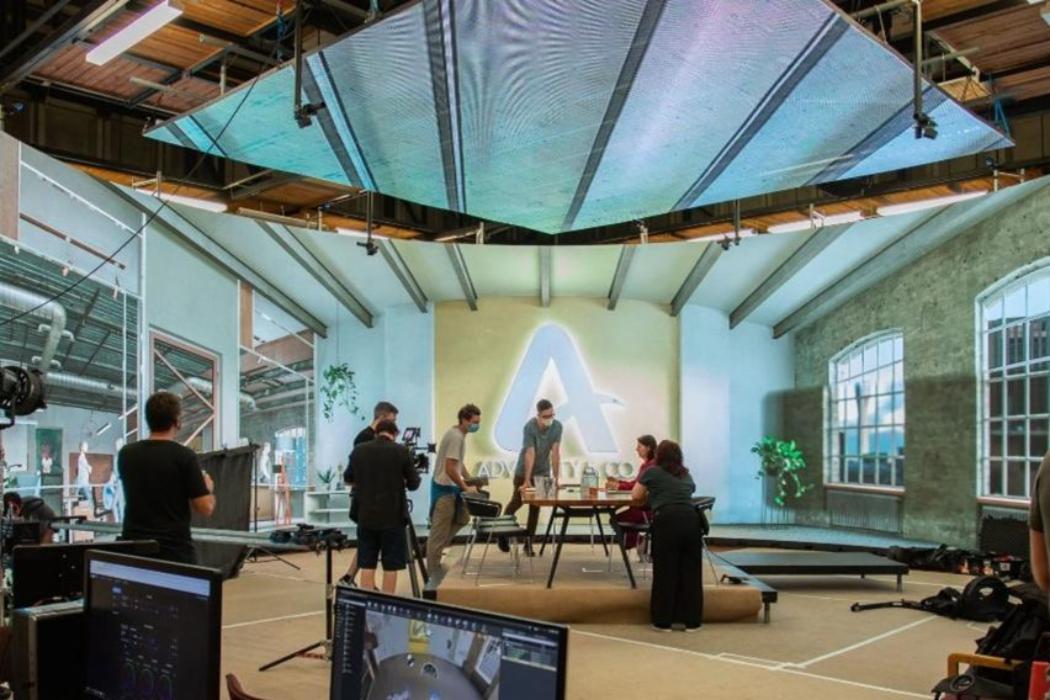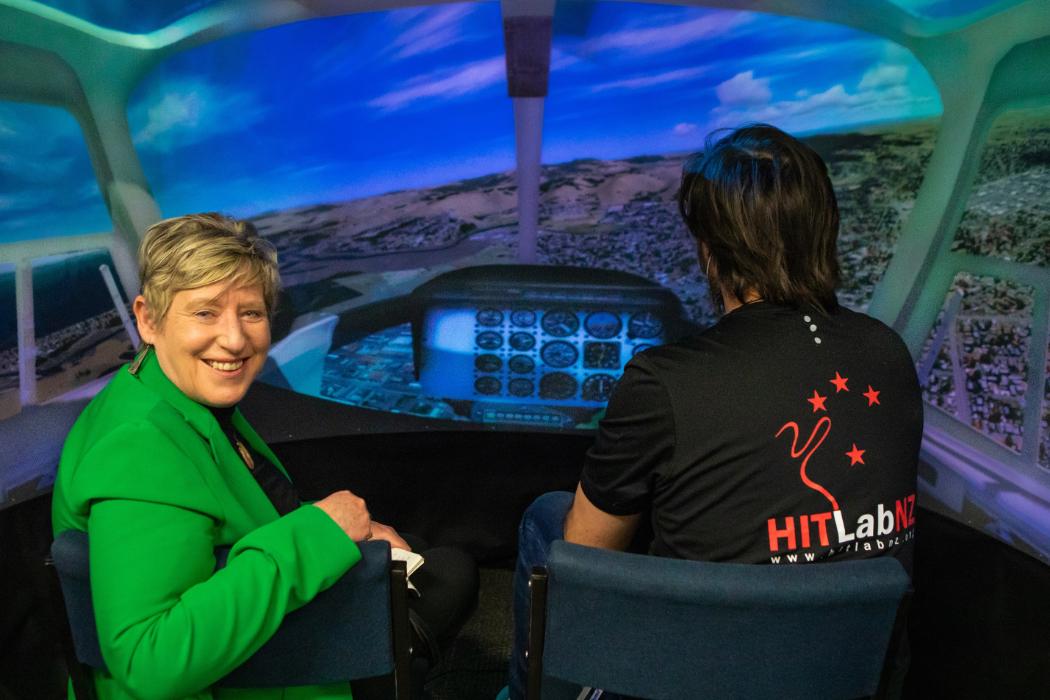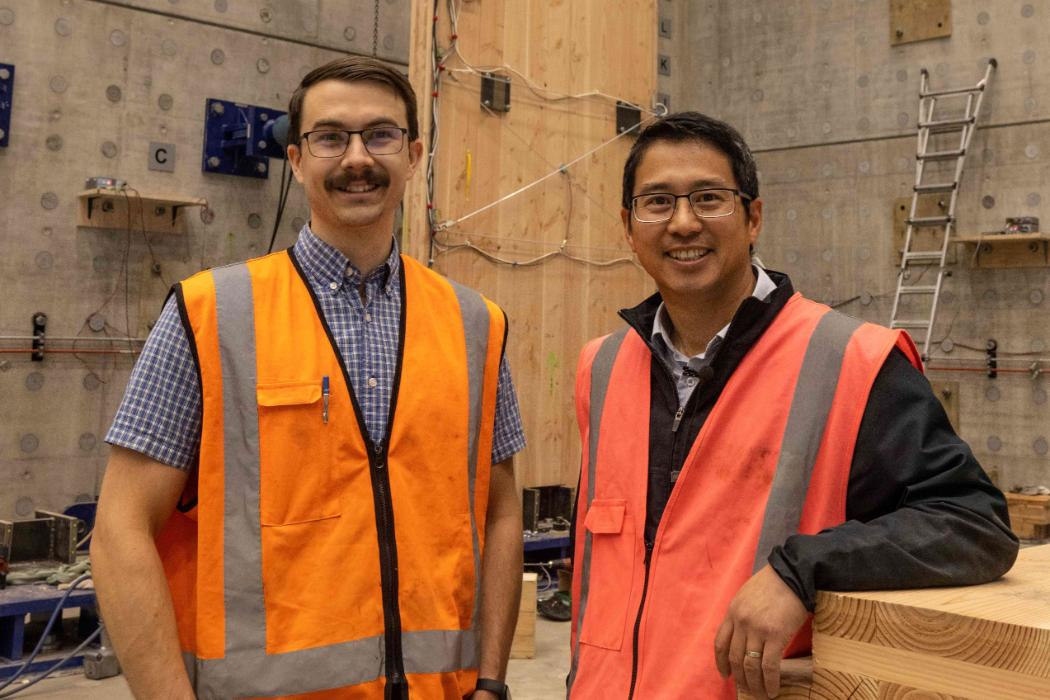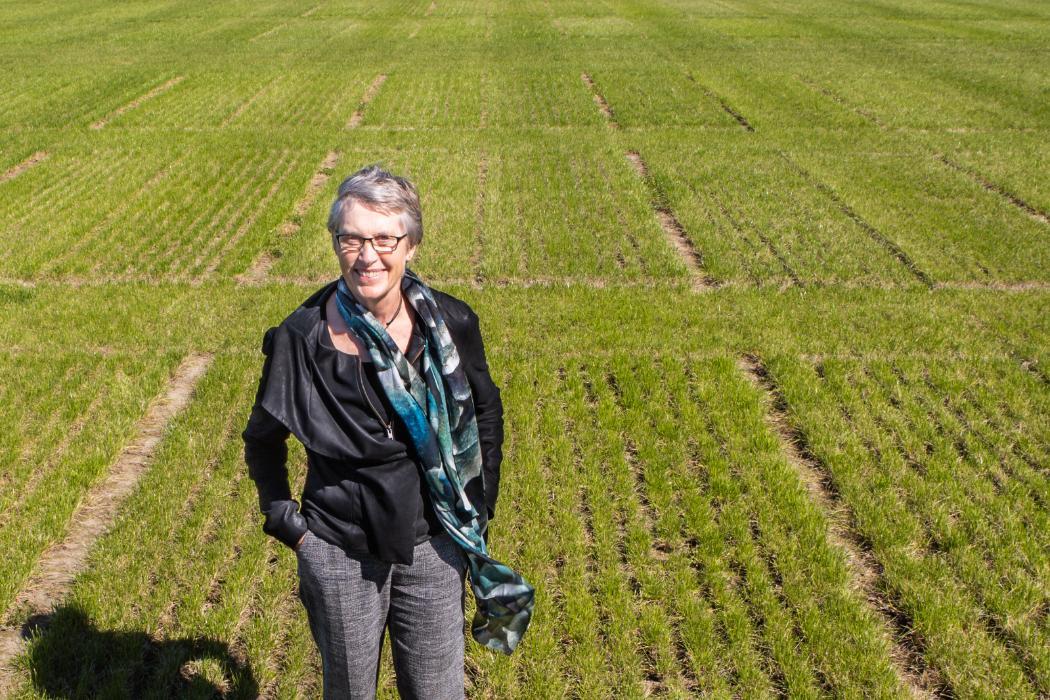Professor Philip Butler honoured
World-renowned UC Physics Professor Philip Butler was made a Companion of the NZ Order of Merit for services to science, education and health. During a stellar 50-year career, spent predominantly at UC, Professor Butler is best known for leading the development of the MARS Bioimaging 3D colour x-ray, a world-first breakthrough in medical technology. Earlier in his career, he led the New Zealand team engaged with ground-breaking particle physics research through the Compact Muon Solenoid experiment. He later co-founded the National Science Technology Roadshow Trust and the Science Alive Charitable Trust in 1991, both promoting learning and careers in science and technology, and helped establish the Tekapo Dark Sky Reserve.
Local talent and technology shines through
Virtual Screen Production (VSP) is being heralded as a revolution in the future of film production. Using a curved wall comprised of hundreds of LED panels, VSP allows actors to perform and interact with their surroundings as they would if they were on location. The technology sparked the interest of several Christchurch-based creative organisations, who saw the opportunity to tap into an abundant pool of local talent and technology at UC’s ground-breaking Digital Screen Campus (DSC). “We know good things happen when industry and education come together, so when we were approached about collaborating on this project and contributing a vital funding stream to ensure it could proceed, we couldn’t say no,” says Petra Westropp, DSC Project Manager. “It’s a great sign of the incredible talent that resides here in Christchurch and New Zealand,“ says Petrina D’Rozario, Screen CanterburyNZ Manager.
Medal for quake research
UC’s Council awarded Professor Misko Cubrinovski with the 2022 UC Research Medal for his huge contribution to geotechnical engineering here and internationally, and for his role in the recovery phase after the Canterbury earthquakes. Professor Cubrinovski played a key leadership role in research and recovery efforts following the earthquakes, including analysis for the Canterbury Earthquakes Royal Commission, and providing expert opinion and advice to government, regional and professional agencies, and the wider engineering community. “Looking back over the past 12 years or so, I am really glad that I was here in Christchurch able to help the community and New Zealand geotechnical profession. All that previous preparation, knowledge and experience suddenly came to fruition,” says Professor Cubrinovski.
Improving clarity of satellite images
Satellites are increasingly being released beyond our atmosphere, but what happens if we lose communication with a satellite and can’t see it to understand why? UC’s Associate Professor Stephen Weddell is leading a research group to significantly improve the image quality of low-Earth orbiting satellites and space debris. “We want to minimise these threats and provide accurate information back to people like the European Space Agency and other organisations who are monitoring these satellites,” says Associate Professor Weddell. The team have developed an adaptive optic system for New Zealand’s largest telescopes at UC’s Mt. John Observatory and are the first to be able to develop this technique and apply it to satellites. “This research is really important as it is providing capability within New Zealand, and an ability to share that information, particularly with our strong collaborations around the world,” says Associate Professor Weddell.
Finding solutions for the shipping industry
An industry-academia research partnership could help offer solutions to reduce the carbon footprint of the freight transport industry. UC researchers are collaborating with a New Zealand shipping company on practical pathways to tackle the problems of a sustainable transition to a low emission future. “The partnership is important to the University as it provides a degree of data availability which is often difficult to attain due to the commercial sensitivity of freight data,” says UC researcher Dr Patricio Gallardo.
Famous UC graduate Ernest Rutherford turns 150
UC commemorated 150 years since the birth of one of its most famous scientists, academics and alumni. Ernest Rutherford was one of New Zealand’s most successful and respected scientists. Rutherford was awarded the 1908 Nobel Prize in chemistry for his investigations into the disintegration of the elements, and the chemistry of radioactive substances. It’s thanks to the scientific discoveries made by Rutherford and his peers that television, radio, sonar and telephones were invented. Among the treasures UC holds in its archives are Rutherford’s large medal collection, the original declaration of students signed by Rutherford on his entry to the University, a large collection of original and secondary source material relating to Rutherford, including 26 academic diplomas, scientific papers, a short film and sound recordings, and replicas of his Nobel Prize. We have two replica sets of Rutherford’s original Nobel medal: one set is on display in the Ernest Rutherford Building, located on our Ilam Campus.
Mayor takes a virtual tour
Christchurch Mayor Lianne Dalziel learned about aerial firefighting and toured a virtual reality hospital during a hands-on visit to UC’s Ilam campus. The Mayor was shown around the Human Interface Technology Lab New Zealand (HIT Lab NZ). The HIT Lab NZ focuses on using new and emerging technologies, such as virtual reality (VR) and applied immersive game design, to solve real-world problems. During the tour Mayor Dalziel tried out a VR training tool for aerial firefighters developed by UC postdoctoral research fellow Rory Clifford and tested a VR game where the user can move around a virtual hospital completing a series of tasks to review the building layout and design. The hospital design project is the work of UC Master of Human Interface Technology student Emma Buchanan, who has a background in architecture and healthcare design.
ThincLab Canterbury
ThincLab Canterbury sits alongside UC’s Centre for Entrepreneurship and is Canterbury’s best connected incubator for growing hi-tech, or research and based companies with global aspirations. ThincLab is the only Founder Incubator located within a New Zealand university setting. You don’t need to have a connection to UC to be involved. ThincLab provides capability building for founders and their teams, connection to industry experts
and agencies, and international pathways to growth and investment.
Students share knowledge with local businesses
The Global Virtual Micro-Internship programme, a new partnership scheme, was launched by our Business School. Under the programme, international students studying Business will be matched with local Canterbury businesses keen to expand into Asia.
The aim is to help the students gain real-world experience and enable businesses to benefit from the students’ unique expertise. Business School Executive Dean Paul Ballantine says UC has a talented group of international students, the vast majority from Asia, who are eager to gain practical work experience: “Alongside the business skills they develop as part of their studies with us, these students bring with them a wealth of linguistic and cultural knowledge and skills that will be of immense value to any business looking to expand overseas.”
Bringing AR to smartphones
The need for social connection became clearer than ever as people locked down around the globe. UC student David Huang realised there was an appetite for a fresh way of connecting with family and friends. Oasis AR uses true augmented reality (AR) on a smartphone to create the sensation of having friends close by in the room, even when they’re far away. Socialising with 3D avatars in games isn’t particularly new, David says, “What’s new is making the use of AR accessible to everyone with a smart phone, and that’s what Oasis AR does. Although we couldn’t cure the pandemic, our hope was that we could create something using AR to help people feel like they’re in the same room with their friends and family. It’s currently the closest thing possible to replicate real-life interaction in an accessible way.” David will be within the first cohort of students to graduate with the conjoint Bachelor of Product Design (Immersive Game Design) and Commerce (Finance) degrees, graduating in 2022. He plans to get involved with
ThincLab next year to continue working on the app full-time.
Student Entrepreneurs Pitch Their Big Ideas
Hosted by our Centre for Entrepreneurship (UCE), UC’s students pitched their business ideas live on stage during a Dragons’ Den-style competition held in early January 2020. UCE programmes empower students to make a real difference. The students’ ventures included promoting a compostable kelp-based plastic alternative, a social enterprise that provides affordable ball dresses for high school students, a technology to recover zinc from industrial waste, and a company that provides data services for the blockchain industry. UCE former Director, Rachel Wright, explains: “This is a fantastic opportunity for UC students to develop their creative business and social enterprise ideas and make a positive difference in the world. The showcase is also a chance for people in the community to come along and discover what the next generation of entrepreneurs in our city are up to.”
QuakeCoRE
Advancing earthquake disaster resilience is at the forefront of research and outreach activities of Te Hiranga Rū QuakeCoRE, a national research centre hosted at UC. Research projects include advancing understanding and modelling of individual earthquake-induced geohazards (including ground motions, liquefaction, and slope instability); the behaviour of structures and infrastructure in the built environment; law, planning and economics; understanding critical cultural and social factors of New Zealand people, and the role of Mātauranga Māori (Māori knowledge). In 2020, the Government awarded a second tranche of funding over seven years for UC to continue hosting the research centre. Deputy Vice-Chancellor Research, Professor Ian Wright says, “This next phase will provide significant advancement and application of new smart technologies to earthquake engineering, and the social and economic mitigation of future earthquake impacts.”
Breakthrough in Recycling Acid Waste
Zincovery is the brainchild of UC’s Associate Professor Aaron Marshall and research student Jonathan Ring. Their new low-cost industrial prototype will be capable of recycling 15 per cent of the acid waste produced by Christchurch’s galvanised steel industry. Until now, there have been few affordable recycling options for the galvanised steel industry as the existing technologies are expensive and recovering zinc has simply not been economic. Zincovery’s ambition is to expand into international markets, which could direct significant financial returns back to New Zealand. Jonathan is working on the business side of Zincovery with UC’s Centre for Entrepreneurship, to fast-track the commercial enterprise.
Talking ‘Hidden Energy’ at Parliament
As part of the Speakers Science Forum 2020, UC cutting-edge research was presented to MPs and decision-makers, to inform the issues being addressed in Parliament. UC Engineering academic Dr Matthew Cowan’s presentation focused on his research, improving the methods and technologies used to purify all the building blocks of society. “The kai we eat was separated from the earth, the water we drink was purified of bacteria, and our cutlery was shaped from metal refined from ore. Amazing amounts of energy are hidden in the objects all around us,” he says. Dr Cowan’s goal is to reduce the amount of energy we need to use every day to slow climate change and enrich lives.
UC Graduate Taking on the World
Charlie Kavanagh graduated from UC in 2020 with a Bachelor of Commerce double major in Information Systems and Management and a minor in German. Charlie says the entrepreneurship scene at UC is unparalleled.
“I started three businesses since coming to UC,” he says. “I wouldn’t have been able to achieve any of these if it wasn’t for the staff and resources at UCE (UC Centre for Entrepreneurship). I’m a business-minded person, and UC has given me access to a ton of resources. The entrepreneurship scene here is unparalleled. I would highly recommend UC to anyone who’s passionate about start-ups. You’ll learn heaps of great skills, meet inspiring people and maybe even graduate with your own business… or three!”
